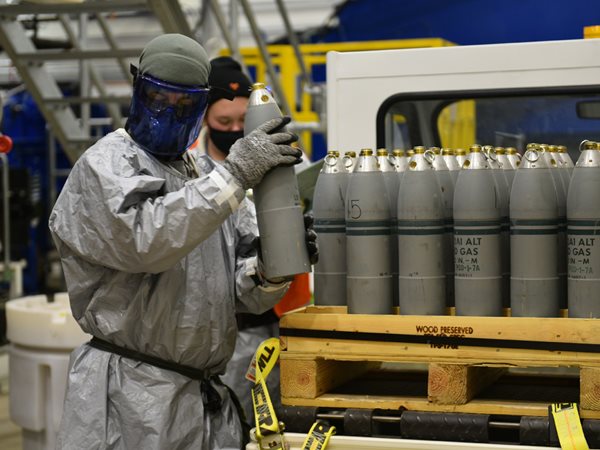
The Pueblo Chemical Agent-Destruction Pilot Plant (PCAPP) team, led by engineering company Bechtel, began eradicating its final round of mustard agent weapons this week at a facility in Pueblo, Colo.
“Safe elimination of the Pueblo stockpile helps the U.S. government meet its international obligations and removes a threat from the community,” Mike Costas, general manager of Bechtel’s Defense & Space business line, said. “We’re honored to continue this important mission.”
Elimination has been proceeding at the site since 2015, gradually and safely removing chemical weapons stored at the U.S. Army Pueblo Chemical Depot. This last run will utilize three electrically heated, armored vessels known as Static Detonation Chambers to destroy the munitions and chemical agents. Deadly gasses released in this process are treated by a pollution abatement system.
The effort is part of larger treaty obligations established through presidential directive and ratification of the international Chemical Weapons Conventions in 1997. Stockpiles in Colorado and Kentucky amount to the last 10 percent of a national stockpile that once included more than 30,000 tons of chemical weapons spread across seven sites. Bechtel is under contract for this effort with the Pentagon’s Program Executive Office, Assembled Chemical Weapons Alternatives.
“After years of work and preparation in getting the SDC units up and running, it is gratifying to be on our way with destruction of the third and final campaign,” Todd Ailes, project manager for the Bechtel Pueblo Team, said. “We are making our community safer with every munition we destroy.”
The last chemical weapons should be destroyed within the target commitment time frame established by the Chemical Weapons Convention: Sept. 30, 2023, even though U.S. law gives the effort slightly longer, until Dec. 31, 2023. Once work is done, the PCAPP facility will be closed, its equipment decontaminated and dismantled, and ultimately removed from the site.




